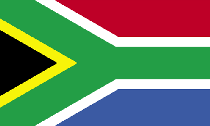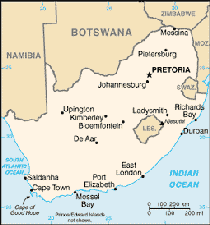Thursday, November 22, 2007
Friday, November 16, 2007
South African Schools
"How do you find the schools there?"
Wednesday, November 14, 2007
New Words
Peace Corps has been such a life changing experience so far ans we have only begun. I have been pushed to places I thought my shy self could not go and beyond the wall I have seen my strength. I have found a passion for dancing I was too self conscious to enjoy before. I have been able to laugh at myself as well as many situations I have found myself in. I have been able to connect with other people on a very human level and I am trying my best to learn everything I can in a very short amount of time.
Colleen from the Midwest asks:
"What is your favorite new word?"To this I would have to say that it is a tie between ventilate and nyaka (knee-ya-ka). I have heard many people use the word ventilate the way English speakers use the verb to vent and I love the sound of it.
Nyaka means simultaneously to want and to need and I think this is beautiful.
Posted by
Jennie Bleckley
at
1:07 PM
0
comments
![]()
Types of Food and Availability
Linda from California asks:
"Do you have access to our types of food, I don't know if food is flown in to you or if you have adapted to local ingredients?We shop for our food in the community with a stipend Peace Corps deposits directly into our bank accounts. Some ingredients and spices are hard to come by, like fresh milk, mozzarella cheese, and other dairy products. But for the most part we're able to eat a similar menu to what we had in the United States.
We haven't quite adapted to the local diet. The food is good, but sometimes can make us sick. This isn't a problem when we're cooking for ourselves, but at weddings and funerals we are careful not to eat too freely.
Saturday, October 27, 2007
Language Barriers, Part II
While we don't yet speak fluently, we are able to say where we come from, why we are here, introduce ourselves, buy produce and so on. And when we are not understood, we can communicate with hand gestures and by rephrasing our statements a couple different ways.
One of the best parts of learning the local language are the reactions we receive. Few people have seen or heard a person with white skin speak their language. In a country still recovering from apartheid, we hope our attempts to learn Sepedi will have some impact.
Children fun and easy to converse with. Our six year old host sister will carry on a conversation with up just by saying our names using different tones.
While there are benefits to living in a country with many English speakers, the disadvantage is we have to work much harder to learn the language. We don't have the immersion to help us.
Thanks for your questions, we'll keep answering them, and feel free to keep sending more.
Posted by
Ben Bleckley
at
2:37 PM
0
comments
![]()
Language Barriers, Part I
A reader asks:
"I know you have been learning the language and customs me the region, but I wonder if the language barrier is a problem, or do you find other ways to communicate?"Compared to Peace Corps Volunteers in other countries, we probably experience less of a language barrier. Students are taught in their home language only through third grade, after which all instruction is given in English (though legally, students can receive instruction in their language of choice). So the younger population is fairly proficient and many working in the professional fields are also fluent.
However, older members of the community may only speak Northern Sotho (Sepedi) and others may speak Sotho and Afrikaans, which was the language of instruction for all grades during apartheid. While we are quickly learning Sepedi, "ga ke kwešiše" (I don't understand) and "ke bolela Sepedi sa nyanne" (I speak a little Sepedi) are common phrases in our everyday speech.
Posted by
Ben Bleckley
at
10:57 AM
0
comments
![]()


